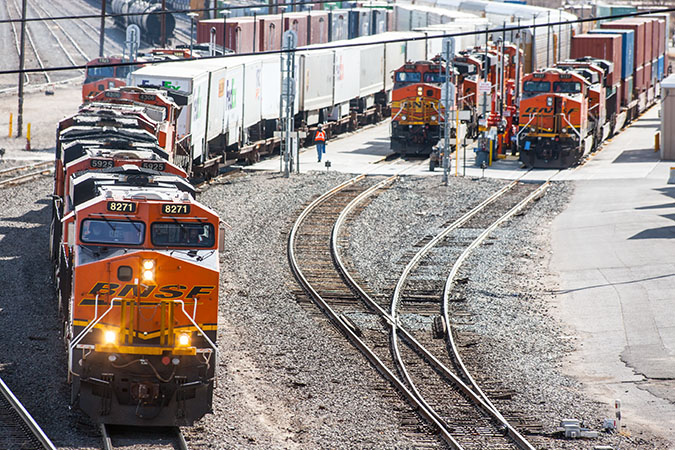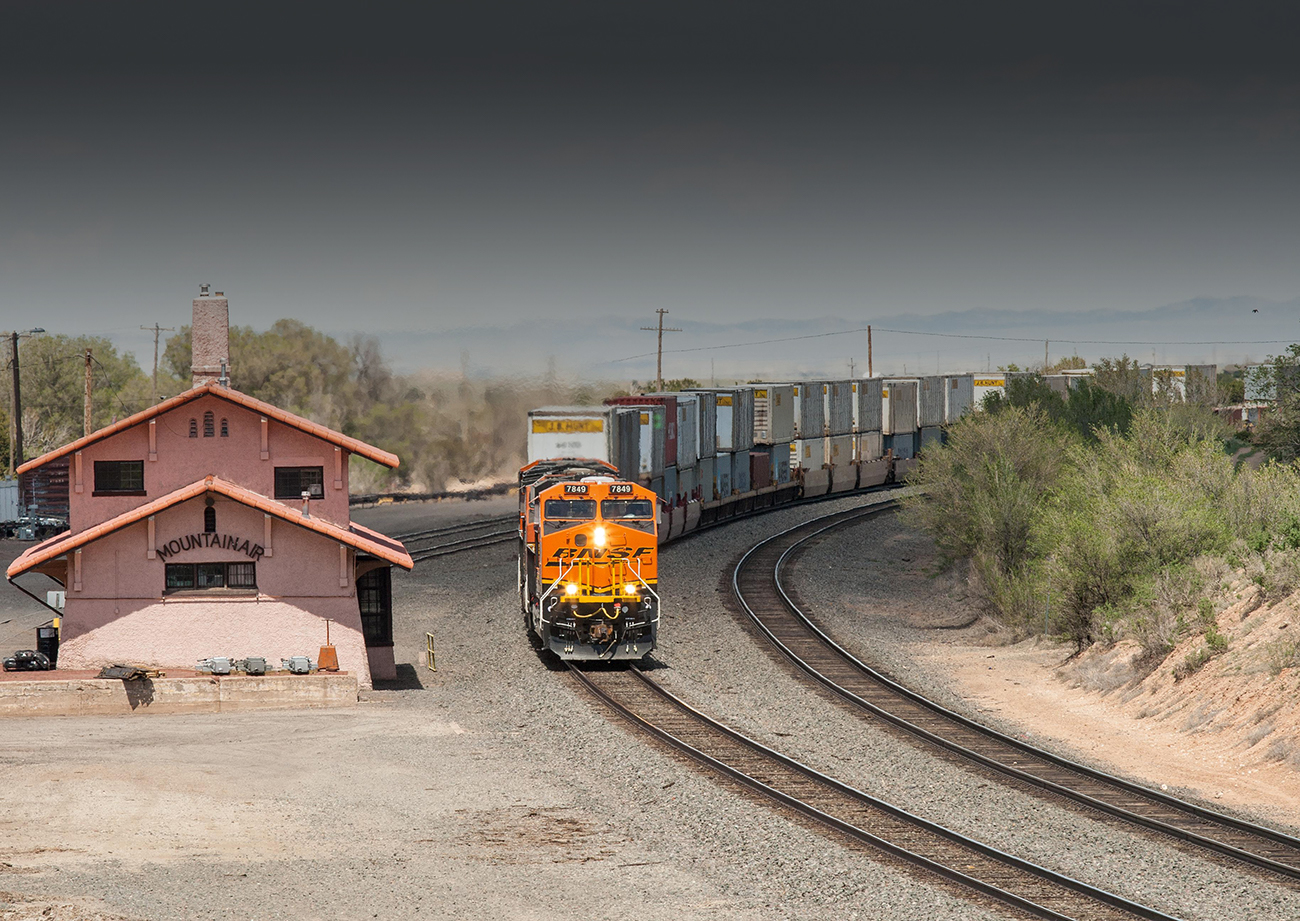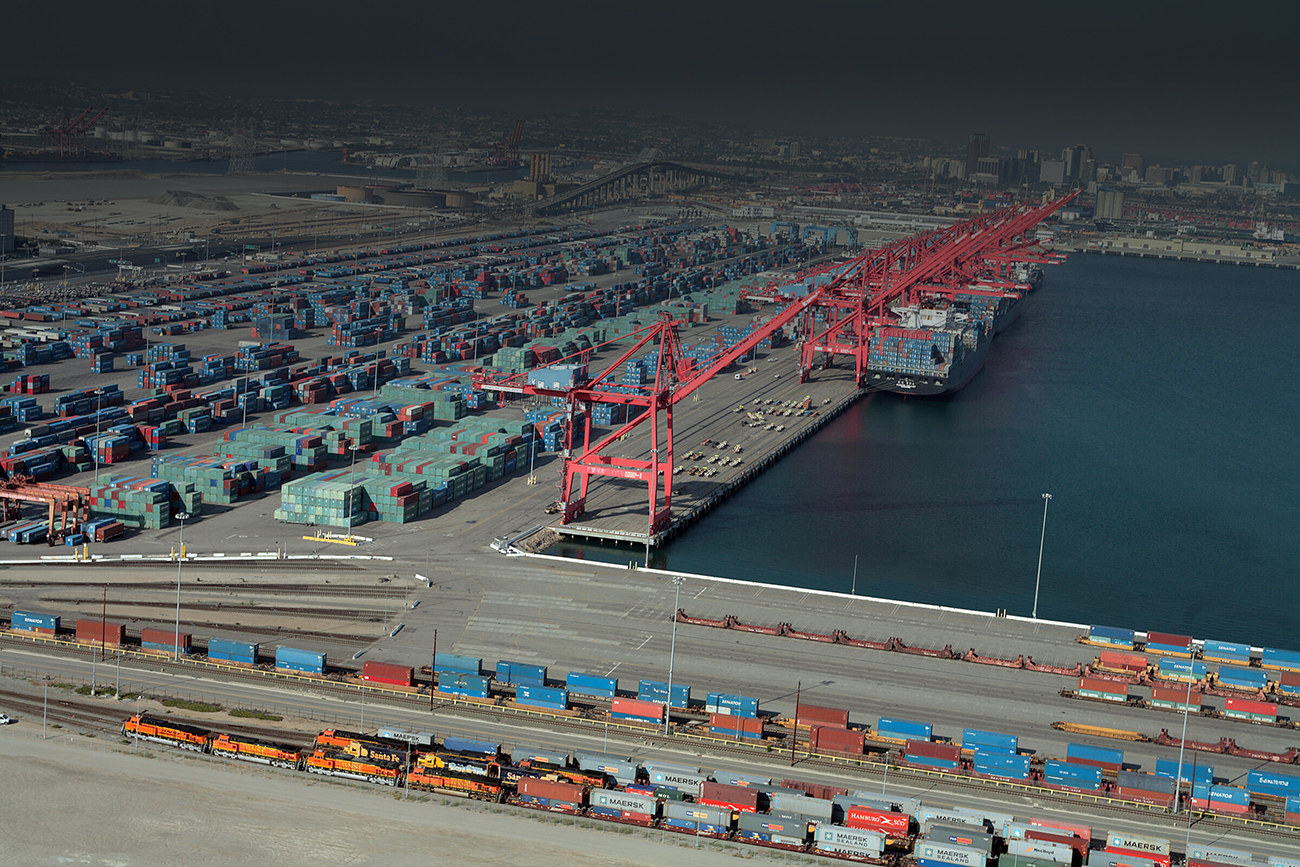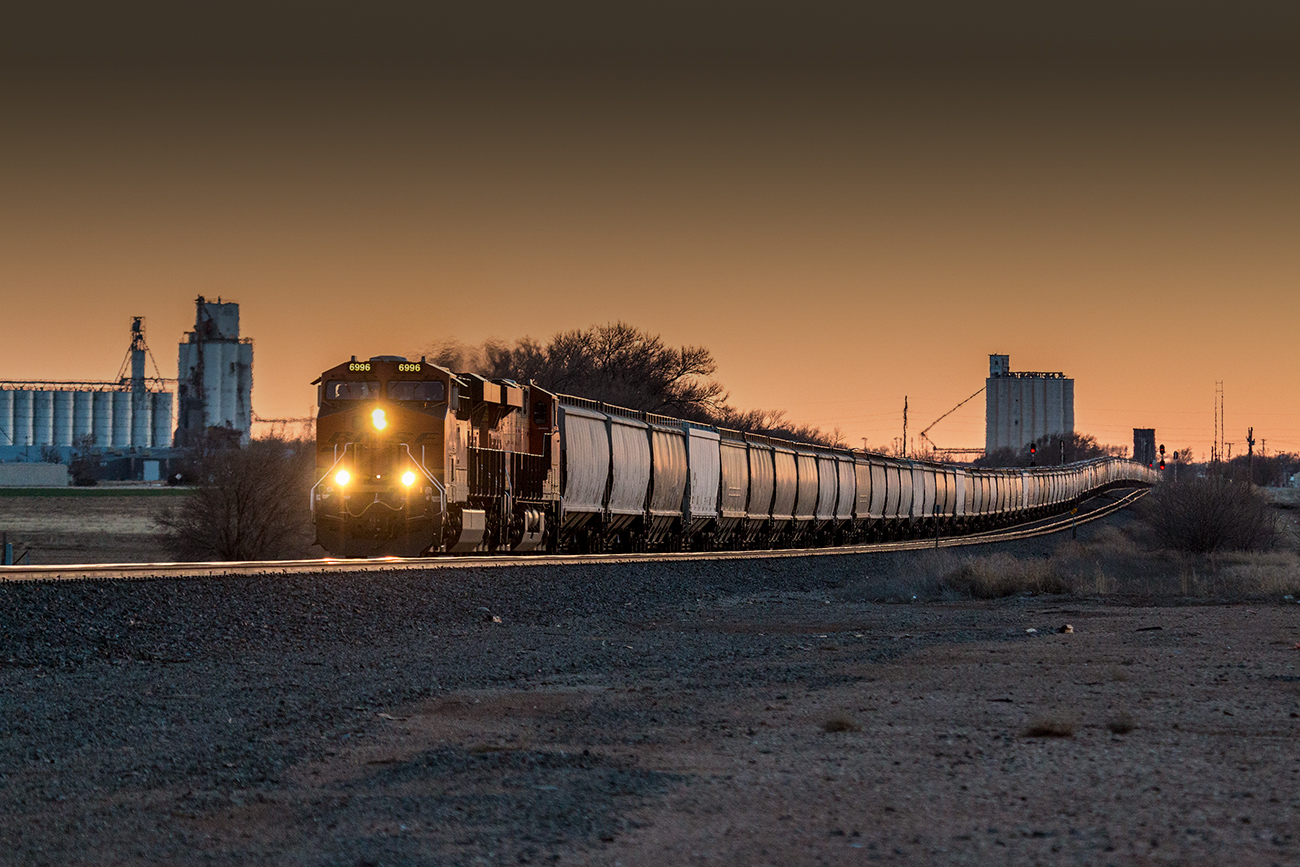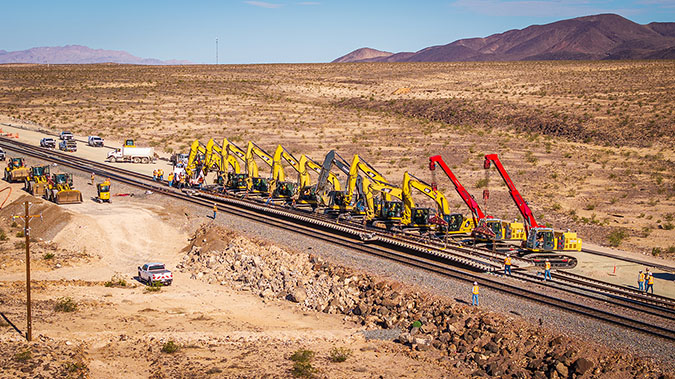
Capital expansion projects enable BNSF, customers to grow
By SUSAN GREEN & MIKE PAGEL
Staff Writers
At BNSF, we have a growth mindset. One of the ways we grow business is to add services. Another is capital expansion. This year alone, we will pour $3.8 billion into our network that will enable us to provide more and more efficient, reliable services across our system and beyond.
We recently completed two capital expenditure projects, one near Phoenix and another in North Texas. Both will be especially important to meeting customer expectations as this year’s harvest continues and we approach peak season, that time of year when retailers fill our intermodal trains with eagerly awaited holiday packages that must be delivered on time.
A third expansion that is part of our drive to grow is in Southern California near Needles, where we continue a multi-year project to increase capacity and improve service for the corridor.
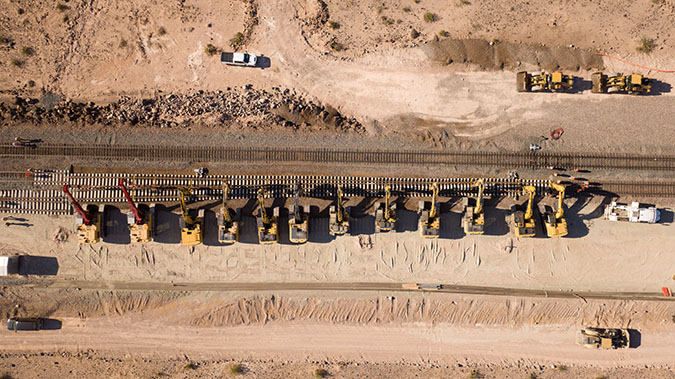
“The expansions that have just come online and those nearing completion have been timed to deliver the services our customers expect, benefiting all of our business units and supporting harvest and the ramp up for peak season,” said Farah Lawler, vice president of Service Design.
Here’s the latest on these projects:
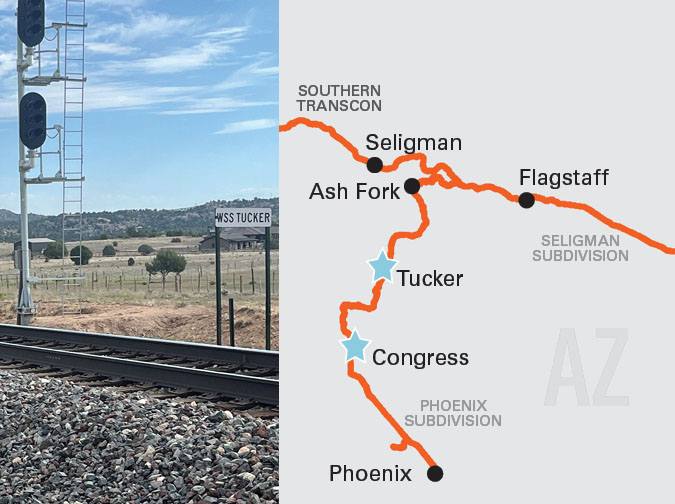
Phoenix Subdivision
Our Phoenix subdivision links Phoenix with our Southern Transcon, connecting at Williams Junction, just west of Flagstaff. Previously, we had only one significantly longer siding along the mainline between Phoenix and Williams.
As part of a multi-year plan to increase capacity on this line, we recently added a 10,000-foot siding and extended another to 10,000 feet. The Congress siding is on the south end of the subdivision and the Tucker siding is near the midpoint.
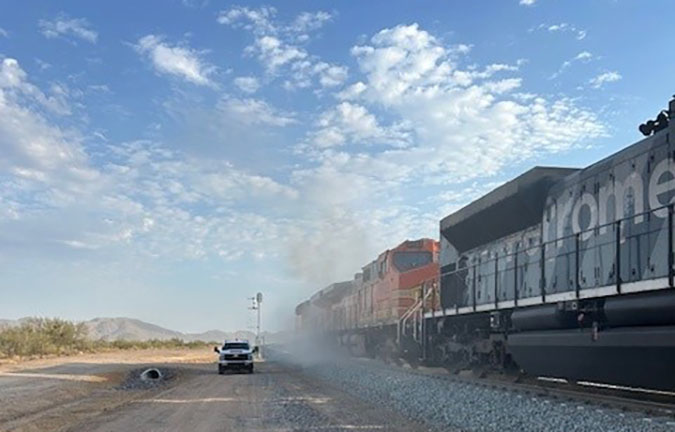
Combined with the Ash Fork siding on the north end of the subdivision that we extended to 16,000 feet in 2022, we’ve increased train fluidity along the entire subdivision. These improvements help reduce congestion and enable more trains to move more efficiently in both directions.
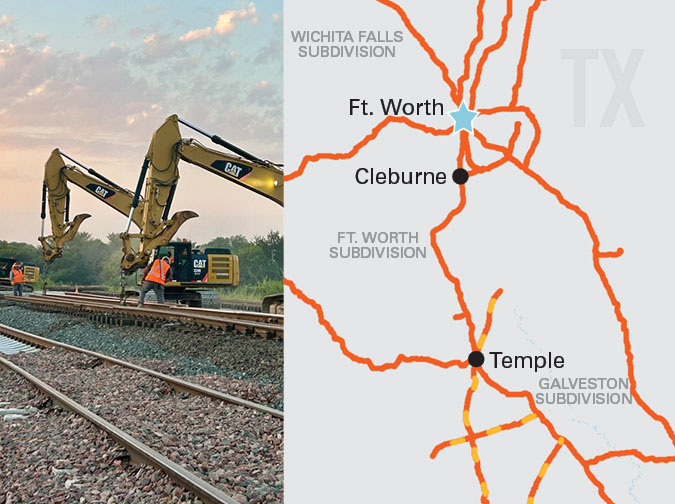
Fort Worth Subdivision
We finished a multi-year double-track project on the Fort Worth Subdivision along an eight-mile stretch between downtown Fort Worth and our Alliance Intermodal Facility. We now have double-track capacity from south of Fort Worth about 25 miles north to just south of Justin, Texas.
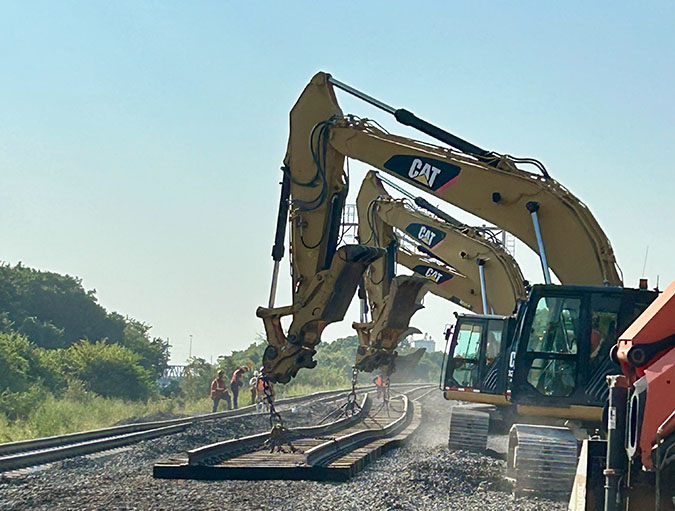
In addition to the benefits of increased capacity and fluidity at this critical, high-volume location, this expansion project included the removal of a crossing diamond and interlocker in Saginaw, Texas. Crossing diamonds are where two sets of tracks running in different directions intersect. In this case, it was a triple crossing. The new track bypasses this busy intersection, while still preserving easy access to our Saginaw yard and Alliance Intermodal Facility.
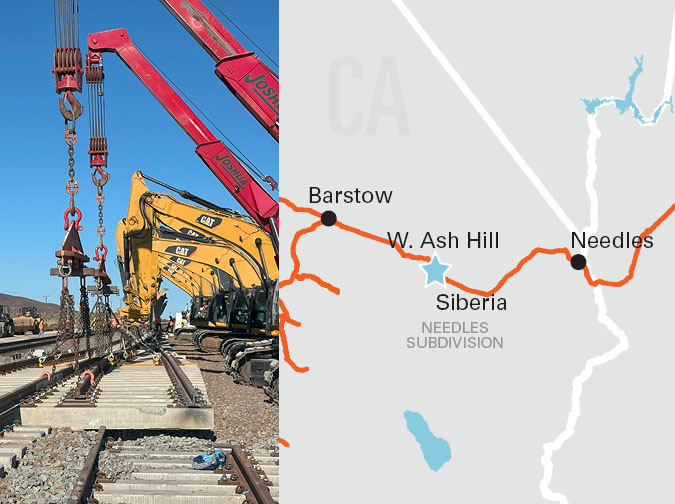
Needles Subdivision
On our Needles Subdivision in California, along our key Southern Transcon stretching 2,200 miles between Southern California and Chicago, we’re completing an 11-mile segment between Ash Hill and Siberia, approximately 50 miles east of Barstow. This segment is part of a multi-year project adding approximately 45 miles of triple track on ascending grades that will increase the number of trains we can run daily here.
Expanding capacity on this vital Transcon corridor supports consistent service and long-term growth. This segment is planned to enter service in early to mid-2026.
Adding capacity enables us to say yes to our customers, and that in turn helps them to grow. We’ll continue expanding our network -- and we’ll be ready when customers turn to us to consistently and reliably move more and more of their freight.
DID YOU KNOW?
Growth takes time, resources and planning, all of which we’ve invested into our Southern Transcon. About halfway along this busy corridor is the Emporia Subdivision in Kansas, where in November 2024 the last 3.5 of about 51 miles of new double track were officially cut over. The entire project took five years.
It was well worth the wait. The expansion not only improved capacity and the flow of trains, it also enabled more eastbound trains to take a shorter primary route to Kansas City and points beyond. (Some eastbound trains had to take a longer route via Newton, Kansas, before completion.)
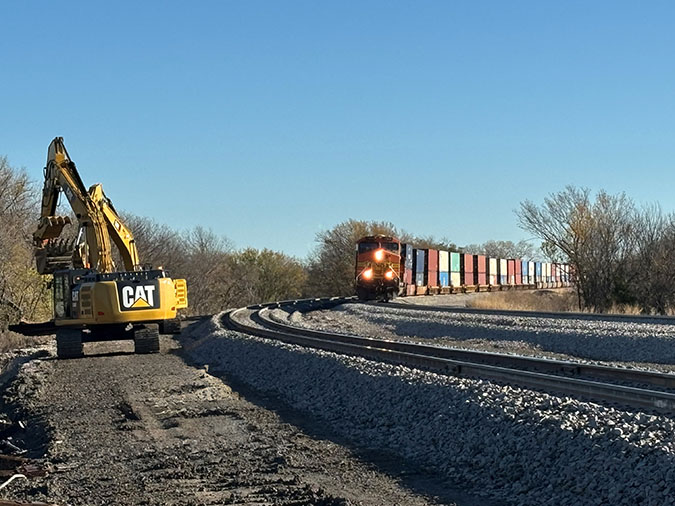
Also last year, another multi-year, mainline improvement project in Becker, New Mexico, on the Clovis Subdivision was completed. This investment next to our Belen facility, the largest fueling facility in North America, included two new processing tracks at around 20,000 feet available for fueling, inspections and crew changes. These additions minimized the time it takes for trains to stop and get moving again toward their destination.
